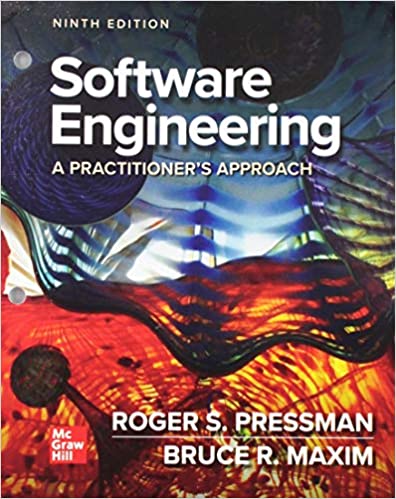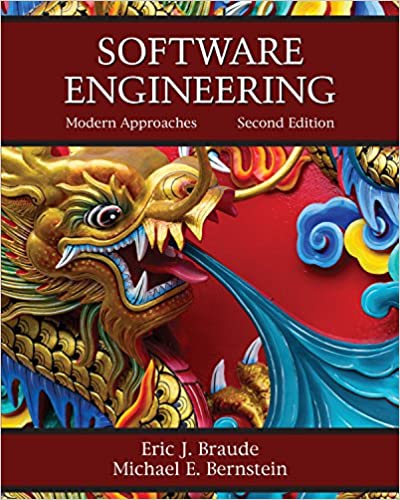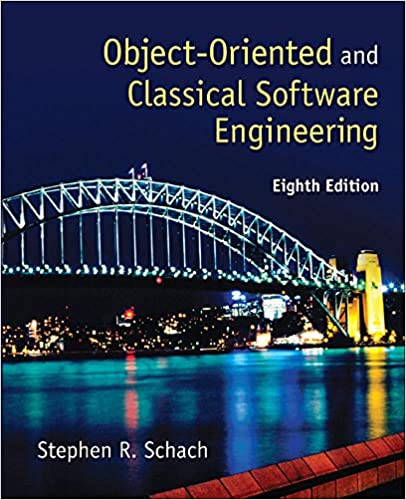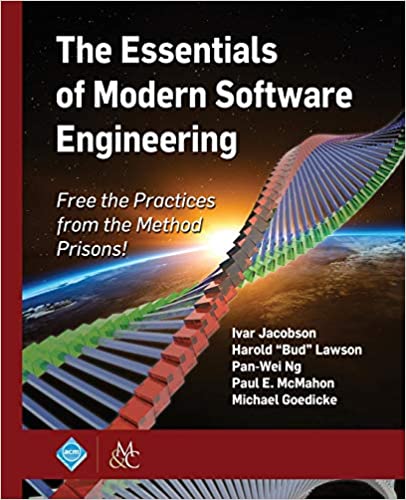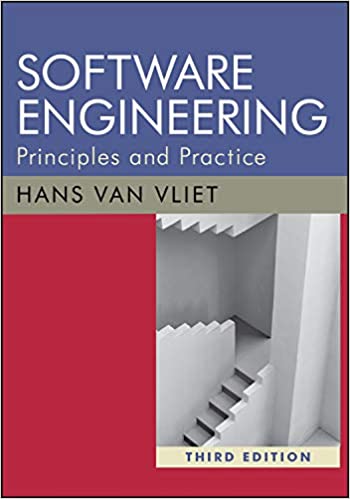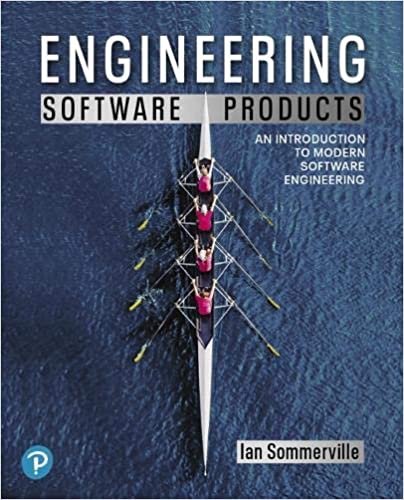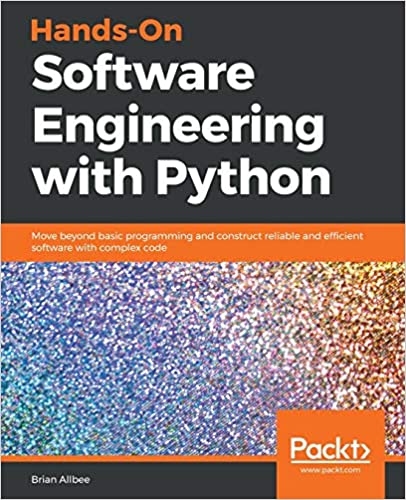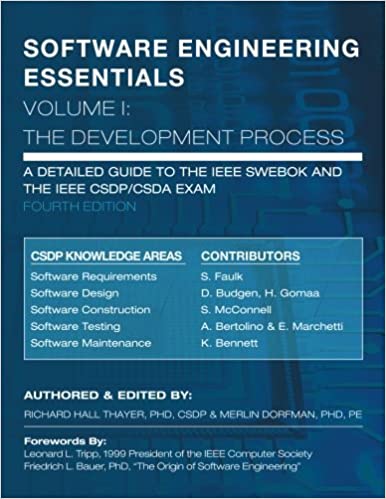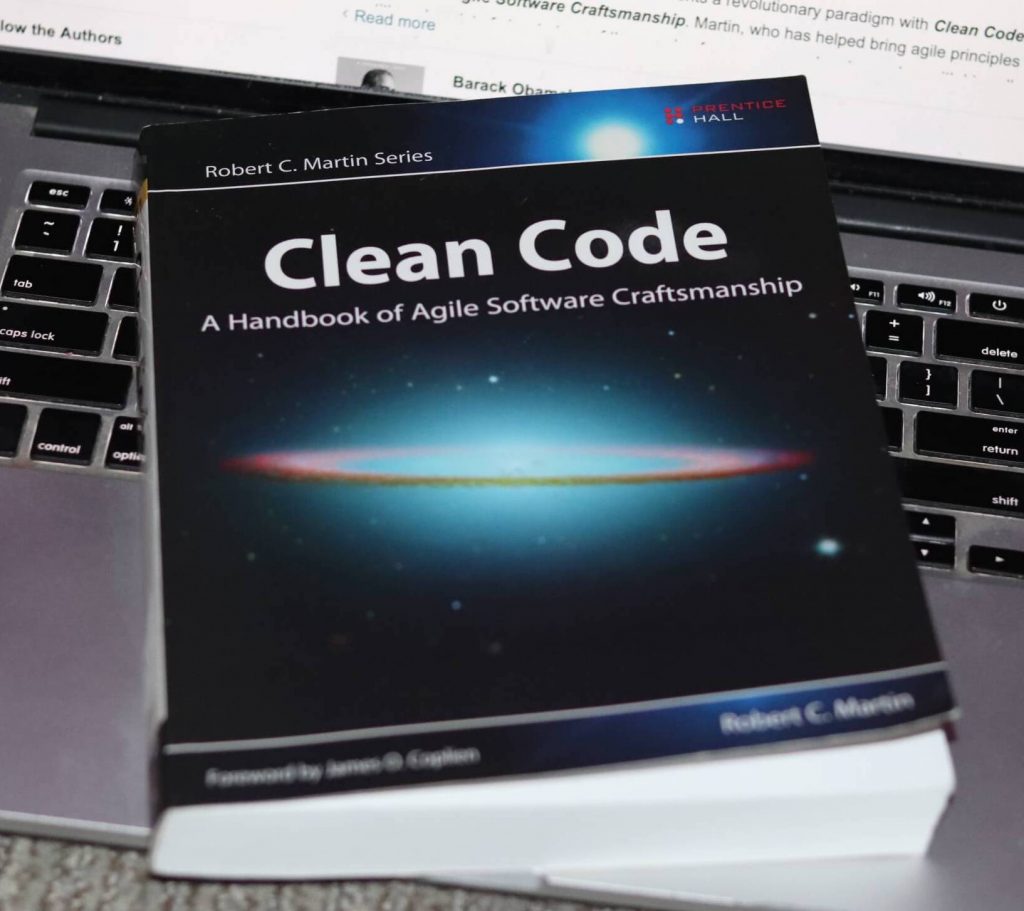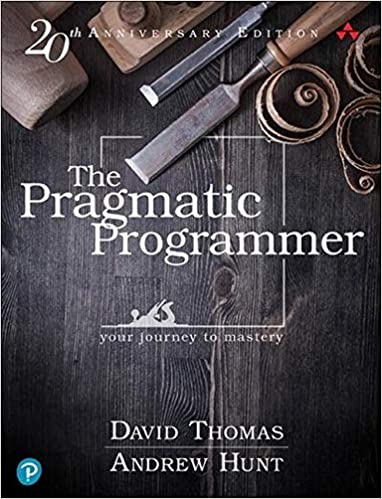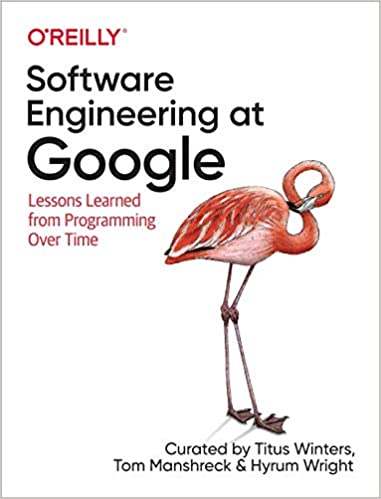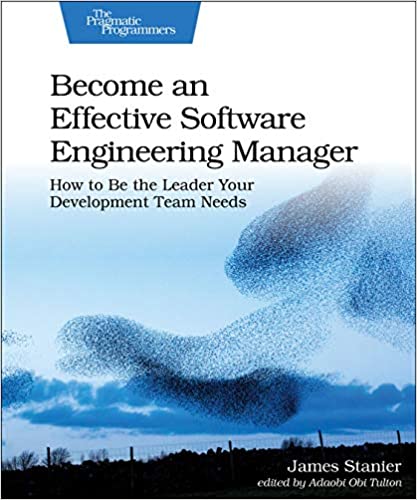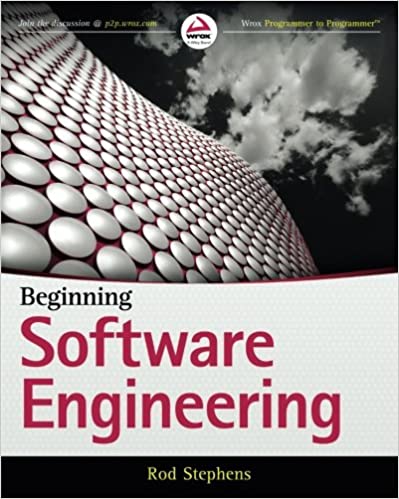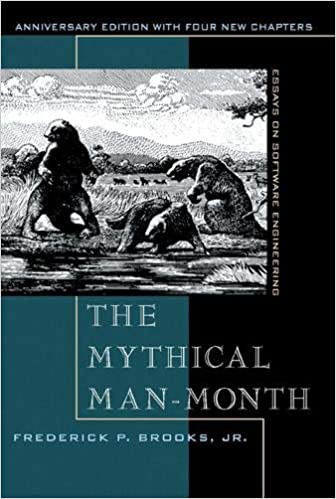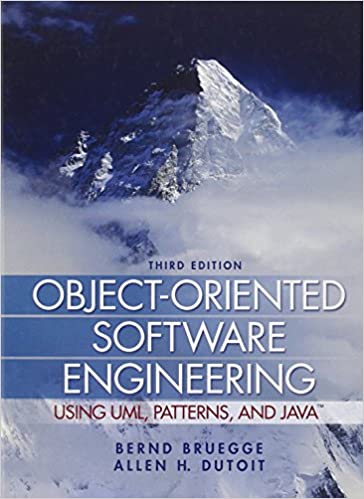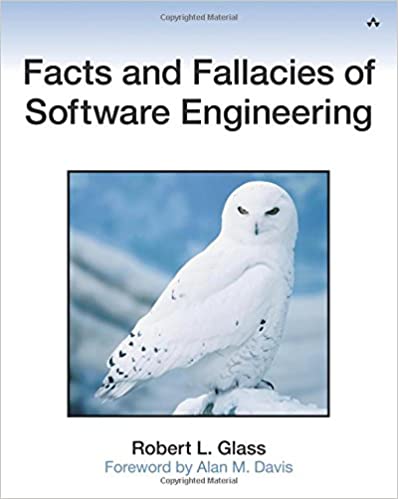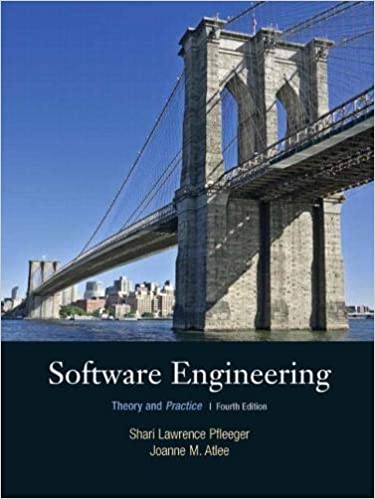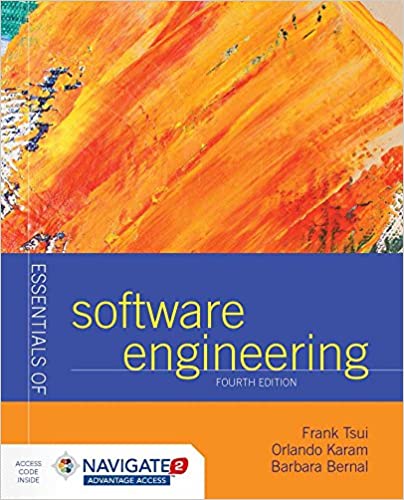According to Glassdoor, the average base salary for software engineers is $92,046 per year.
Now if that’s not motivation enough to learn software engineering, I’m not sure what is.
So we started poking around and came up with the best software engineering books .
This post contains affiliate links. I may receive compensation if you buy something. Read my disclosure for more details.
TLDR: Best Software Engineering Books
We picked the absolute best software engineering books based on the following criteria:
🔥 Best Overall 🔥
Software Engineering: A Practitioner’s Approach
💥 Best for Newbies 💥
Engineering Software Products: An Introduction to Modern Software Engineering
💸 Best Value 💸
The Pragmatic Programmer
1. Software Engineering: A Practitioner’s Approach
Software Engineering: A Practitioner’s Approach by Roger Pressman and Bruce Maxim is a massive (and awesome) textbook.
It’s separated into five parts:
- The Software Process
- Modeling
- Quality Management
- Managing Software Projects
- Advanced Topics like object-oriented programming
The chapter structure takes on a linear approach to learning software engineering. So that way you can build on previous concepts instead of jumping around.
You’ll learn about software engineering methods while eliminating secondary ones.
We think Software Engineering: A Practitioner’s Approach is ideal for any student searching for a comprehensive education in software engineering.
Want the perfect course as a side to this top-notch book? Check out Educative.io’s Grokking Computer Networking for Software Engineers.
2. Software Engineering
Software Engineering by Ian Sommerville is another textbook.
First you’ll be introduced to software programming and development so you’ll learn about fundamental concepts in a comprehensive way.
In this updated edition, you’ll examine technological updates of current years.
Software Engineering is broken down into four parts:
- Introduction to Software Engineering
- Dependability and Security
- Advanced Software Engineering
- Software Management
As with other software engineering books, you’ll incorporate agile methods into your software engineering.
Also, you’ll learn how to create software that will improve and advance our surroundings.
3. Software Engineering: Modern Approaches
As a software engineer, you need to be able to employ multiple software processes. This ranges from agile methodologies to the waterfall process.
You’ll learn this and more in Software Engineering by Eric Braude and Michael Bernstein. In addition, you’ll learn how applications are planned and developed.
You’ll also learn software engineering as it relates to requirements-to-design.
Then you’ll learn about programming and agile methods like ensuring software engineering is code-oriented. You’ll also learn about software engineering foundations.
Finally, you’ll work with a series of hands-on projects and case studies.
In addition to learning the keys to software engineering, you’ll learn how to:
- interact with customers
- clearly express requirements
- create flexible designs
And much more.
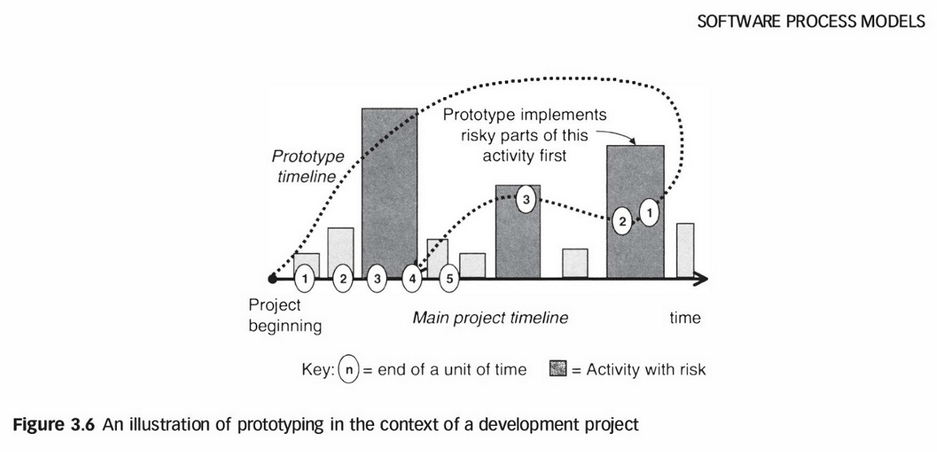
4. Object-Oriented and Classical Software Engineering
Object-Oriented and Classical Engineering by Stephen Schach is another whopping textbook.
This 8th edition has significant improvements over previous ones. Now it’s more comprehensive and digestible.
It’s an ideal book for beginners interested in the object-oriented aspect of software engineering. Using real-world case studies, the book is separated into two parts.
First, you’ll learn about software engineering theory.
Then you’ll learn about the practical life cycle of software engineering.
Object-Oriented and Classical Software Engineer is written in a student-friendly way. Therefore, it’s more understandable than some other software engineering textbooks.
5. The Essentials of Modern Software Engineering
The Essentials of Modern Software Engineering by Ivar Jacobson, et al. touts itself as being one of the most critical books to start learning software engineering.
First you’ll learn about three essential components of software engineering:
- elements to work with
- things to do
- competencies needed to develop software
Then by using real-world examples, you’ll learn fundamentals of software engineering. In addition, you’ll learn about small-scale development.
Finally, you’ll learn how to scale to support complex systems.
Throughout The Essentials of Modern Software Engineering, you’ll work on plenty of practice problems to reinforce concepts.
6. Software Engineering: Principles and Practice
Software Engineering: Principles and Practice by Hans van Vliet is a bit of an older book (2008). However, it’s a good place to learn the core principles of software engineering that are still relevant today.
This third edition includes software architecture and requirements engineering.
In addition, there are chapters on:
- global software development
- service orientation
- component-based software engineering
Then you’ll learn about heavyweight and lightweight methodologies for development.
Software Engineering is ideal for both beginners and seasoned software engineers interested in large-scale development.
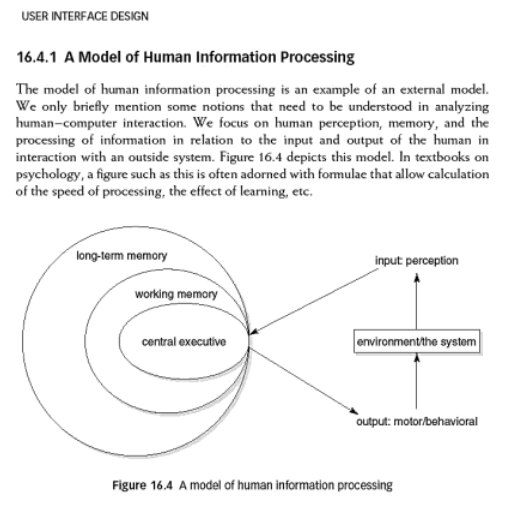
Learn about web app security with the Educative.io course Web Application for the Everyday Software Engineer.
7. Engineering Software Products: An Introduction to Modern Software Engineering
Engineering Software Products by Ian Sommerville is an introductory textbook. It’s geared towards teaching software engineering techniques to develop applications and software products.
The writing style is a bit informal, a nice break from the typical software engineering learning style.
Some of what you’ll learn includes:
- personas and scenarios
- cloud-based software
- microservices
- security
- privacy
And beyond.
Engineering Software Products is geared towards software engineering newbies. But you are expected to have experiencing with Java, Python or Ruby.
8. Hands-On Software Engineering with Python
Hands-On Software Engineering with Python by Brian Allbee contains plenty of software engineering goodies. You’ll learn everything from the smallest details to mastering the techniques used in software engineering.
For example, you’ll learn about what happens in the software development life cycle (SDLC). In addition, you’ll learn how development is affected by specific development phases of the SDLC.
Also, you’ll use agile methods to examine what real-world development is like.
Another skill you’ll pick up is learning how to identify (and use) software engineering best practices.
Finally, you’ll learn how to design high-performance computing processes. And you’ll be doing all of this in Python.
9. Software Engineering Essentials, Volume I
Software Engineering Essentials by Richard Hall Thayer and Merlin Dorfman. is geared towards students preparing for the IEEE CSOP/CSDA exam. That’s to get a software engineering certification.
So this book is not for absolute beginners.
However, it can be useful for software engineers with some experience. And the book has been modified to reflect that and is now more academically accessible.
With 5 chapters, you’ll learn the key steps of software engineering:
- requirements
- design
- construction
- testing
- maintenance
Software Engineering Essentials can also prove to be a valuable reference throughout your software engineering career.
10. Clean Code: A Handbook of Agile Software Craftsmanship
Clean Code by Robert C. Martin is one of the best software engineering books on the market today. With this 3-part book, you’ll how learn to produce better code.
First you’ll learn about the three Ps of writing clean code:
- principles
- patterns
- practices
Then you’ll go through several case studies where you clean up code.
Finally, you’ll learn about heuristics attained while creating case studies. So then you’ll be able to read and write clean code.
By the end of the book, you’ll know the difference between good and bad code. In addition, you’ll learn how to format code, unit test and implement complete error handling.
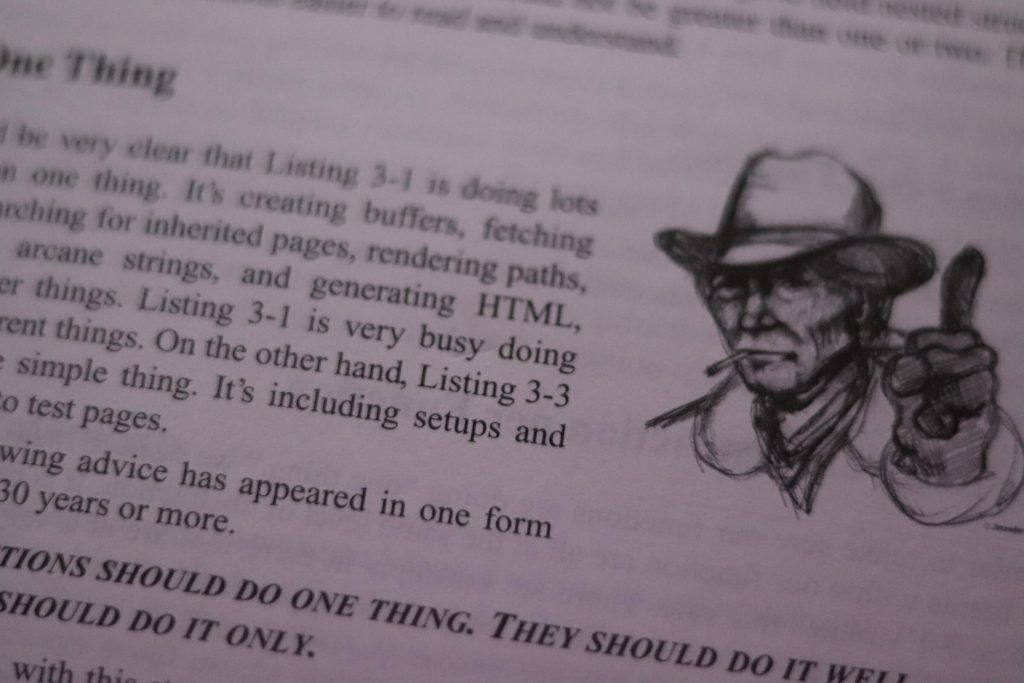
11. The Pragmatic Programmer
The Pragmatic Programmer by David Thomas and Andrew Hunt is one of the best software engineering books for beginners and experienced programmers. Originally published in 1999, their 20th Anniversary Edition is filled with updated material.
You’ll learn about everything from personal responsibility to career development.
In addition, you’ll learn how to keep code flexible and reusable. You’ll also be able to use basic tools to your advantage.
Then you’ll learn how to solve underlying problems of concurrent code.
Some other things you’ll learn include:
- fighting software rot
- guarding against security vulnerabilities
- continuous learning
- taking responsibility
And much more.
The book also includes free downloads and updates.
Want to know more about the essentials of software engineering? Check out Pluralsight’s course Software Engineering Essentials.
12. Software Engineering at Google
Software Engineering at Google by Titus Winters, et al. was written by two Google software engineers. With over 500 pages, it stresses the difference between programming and software engineering.
In this 5-part book, you’ll learn about:
- what software engineering is
- how to work on teams
- measuring engineering productivity
- style guides and rules
- documentation
- unit testing
- version control and branch management
And beyond.
In addition, you’ll get an inside look at Google’s engineering culture, processes and tools. Then you’ll learn how to make your code resilient and resistant to time in regards to sustainability.
In addition, you’ll learn about scale and the viability of software practices within engineering organizations.
Finally, you’ll learn about evaluation design, trade-offs and other development decisions.
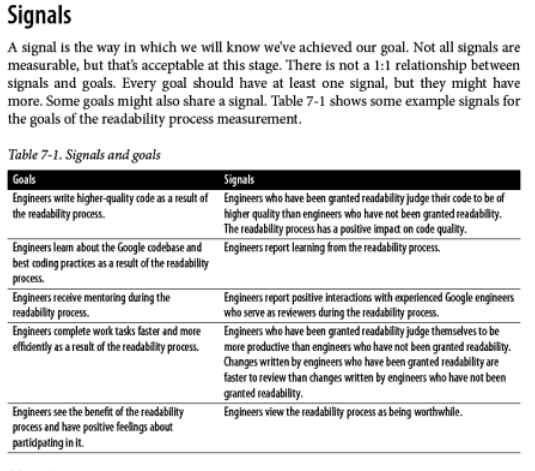
13. Become an Effective Software Engineering Manager
Have you managed a team before? If not, there are a lot of difficult issues to consider:
- where to start
- how to lead
- what you need to learn
- how to know if your methods are effective
Become an Effective Software Engineering Manager by James Stanier is geared towards software engineers preparing to make the transition into management.
First you’ll start by analyzing the similarities. Then you’ll learn how to organize information better, be more productive and delegate tasks.
In addition, you’ll learn about the psychology behind becoming an effective software engineering manager.
This includes:
- keeping the staff happy
- mentoring
- dealing with deadlines
- dealing with workplace politics
And beyond.
Become an Effective Software Engineering Manager can start you off on the right path to becoming a stellar software engineering manager.
14. Beginning Software Engineering
Beginning Software Engineering by Rod Stephens is intended for readers with no prior programming experience.
First you’ll learn the absolute basics of software engineering. Then you’ll learn about the responsibilities of team members that are working on a software engineering project.
You’ll also become familiar with different phases of software engineering in order to produce dependable applications. After that, you’ll learn some of the most popular software development methodologies.
At the end of each chapter is a series of exercises to reinforce concepts. And there’s an extensive glossary of software engineering terms.
15. The Mythical Man-Month: Essays on Software Engineering
The Mythical Man-Month is one of the best-sellers on software engineering.
The central argument in The Mythical Man-Month is that larger programming projects suffer differently from small projects due to the discrepancy in labor. In addition it asserts that integrity is critical, no matter how difficult.
The book focuses on software project management while using a combination of software engineering facts and personal opinions.
And all opinions are based on personal experience of author Frederick Brooks, Jr., a project manager for IBM System/360 and OS/360.
This 20th Anniversary edition contains four new chapters and updates to previous ones.
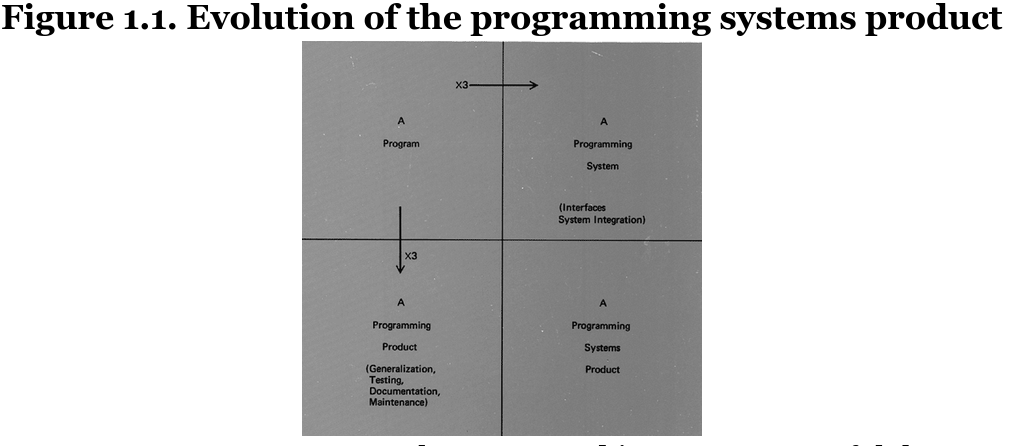
16. Object-Oriented Software Engineering Using UML, Patterns, and Java
Object-Oriented Software Engineering is another textbook.
Using a step-by-step approach, you’ll learn how to use modern solutions to deal with changing problems.
Object-Oriented Software Engineering by Bernd Bruegge and Allen Dutoit is separated into four parts.
First you’ll learn about software engineering.
The book uses real-world examples to examine:
- Unified Modeling Language (UML)
- Java-based technologies
- design patterns
- configuration management
- quality control
And beyond.
You’ll also learn about issues related to project management.
For more software engineering in Java, check out the Coursera Specialization Java Programming and Software Engineering Fundamentals.
17. Facts and Fallacies of Software Engineering
Facts and Fallacies of Software Engineering by Robert Glass is about exactly that.
The book is separated into two parts which examine truths and misconceptions about software engineering.
First, you’ll examine 55 facts about software engineering such as:
- A working environment has an effect on productivity
- New tools and techniques cause an initial loss of productivity
- Errors tend to cluster
And the list goes on.
Then you’ll learn about 10 fallacies of software engineering such as:
- You can’t manage what you can’t measure
- When it comes to tools and techniques, one size fits all
- Estimate lines of code to estimate cost and schedule
And beyond.
18. Software Engineering: Theory and Practice
Software Engineering: Theory and Practice is another textbook in our list of best software engineering books.
It was written by Shari Lawrence Pfleeger, a senior researcher at RAND, and Joanne M. Atlee, a professor in the Cheriton School of Computer Science at University of Waterloo.
It’s geared towards absolute beginners of software engineering.
You’ll learn about both procedural and object-oriented development.
Software Engineering has been updated to include modeling and agile methods. In addition, you’ll learn about typical and real-time systems.
Then you’ll work with real-world case studies to apply practical software engineering concepts.
19. Essentials of Software Engineering
Essentials of Software Engineering by Frank Tsui, et al. uses real-world examples, to teach you:
- programming concepts
- system analysis and design
- principles of software engineering
- methodologies
- software testing and quality
- product management
And much, much more.
In addition, Essentials of Software Engineering contains two new sections on Big Data and cloud development.
Also, included with the book is online access to an interactive eBook, student activities and assessments.
Best software engineering books: Conclusion
Today we looked at some of the best software engineering books.
Then we found three that were a cut above the rest:
Best Overall
Software Engineering: A Practitioner’s Approach
Best for Newbies
Engineering Software Products: An Introduction to Modern Software Engineering
Best Value
The Pragmatic Programmer
So whether you’re looking for the best overall, a budget-friendly book, or a newbie-friendly guide, we think there’s something for every aspiring software engineer.
Up Next:
- Who is Gayle Laakmann McDowell? [Cracking the Coding Interview Author]
- 9 Best Data Science Courses for Beginners [+4 Data Science Learning Paths]
- 8 Best Web Design Courses [And Web Design Learning Paths]
- 21 Best Web Design Books [Learn Web Design]
- 14 Best UX Books This Year [Beginner to Advanced UX Designers]
What are the best software engineering books?
The best software engineering books we could find are separated into three categories. For best overall, we think Software Engineering: A Practitioner’s Approach is the way to go. For newbies, we think Engineering Software Products: An Introduction to Modern Software Engineering is a quality choice. And for best value, we think The Pragmatic Programmer takes the win.
Is the book Software Engineering: A Practitioner’s Approach worth it?
Yes, we think Software Engineering: A Practitioner’s Approach is definitely worth it. The chapter structure takes on a linear approach to learning software engineering. So that way you can build on previous concepts instead of jumping around. You’ll learn about software engineering methods while eliminating secondary ones. We think Software Engineering: A Practitioner’s Approach is ideal for any student searching for a comprehensive education in software engineering.
Is the book The Pragmatic Programmer worth it?
The Pragmatic Programmer is one of the best software engineering books for beginners and experienced programmers. Originally written in 1999, their 20th Anniversary Edition is filled with updated material. You’ll learn about everything from personal responsibility to career development. In addition, you’ll learn how to keep code flexible and reusable. You’ll also be able to use basic tools to your advantage. Also, you’ll learn how to solve underlying problems of concurrent code.
Some other things you’ll learn include fighting software rot,
guarding against security vulnerabilities, continuous learning, taking responsibility and much more. The book also includes free downloads and updates.
![19 best software engineering books [become a software engineer] with faded black background](https://realtoughcandy.com/wp-content/uploads/2021/02/best-software-engineer-books-cover-1024x576.jpg)
